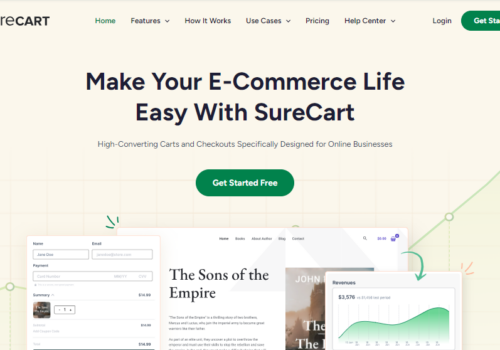- Ecomhunt functions basically around product suggestion. Ecomhunt provides you with all the essential information you need to run an ECommerce Business or a dropshipping store.
- Moz is an SEO tool.Key features of Moz include Keyword Research, Site Crawling, Site Ranking, Content Optimisation, Analytics Reporting, Link Search, etc.
- BigSpy is an amazing free advertising spy tool. Bigspy has a large amount of data, and you can search for any major platform creatives you want. BigSpy is an amazing free advertising spy tool.
Are you into E-commerce Business? Do you have a built-on Shopify? Or your competitor’s website is Shopify? And you’re wondering how to Spy into your competitor’s website or ad account.
I know it because you are here. Trust us; you are in the right place to find the right tools to spy on your competitor’s Shopify store.
Well, I understand we live in a competitive world, and to survive in this fast-paced world, it is very important to know what your competitors are doing.
Standing tall in the e-commerce industry is not a cakewalk. Sometimes, despite doing everything, generating high sales becomes a big task, while on the other hand, when you see your competitor doing well.
I know those are frustrating times when you cannot understand what you are lacking in your strategies or formulations.
Let me tell you, you don’t always need to reinvent the wheel. You just need to look for what is already working, and you can make it work for you. There are methods out there that have worked.
I am sure what you are thinking, “How to find those wheels?”, “How to find those methods?”. Well, I’m here to tell you “Exactly How?”
In this blog, I have shortlisted the 12 most important and useful tools/Software for spying on your competitor’s Shopify store. So, without any further, let’s get started.
11 Best Shopify Tools To Spy On Competitors Like A Pro:
1) Niche Scraper
Choosing a niche is the first step to starting a business (Regardless of whether the business is online or offline). You need to decide what exactly you want to deal with. Niche is basically your specialization in the business world.
In today’s competitive world, it is highly important to have a “Niche.” You must decide which product category you want to deal in, how beneficial it is to choose a particular niche, what the risk percentage is in that niche, etc.
Niche Srcaper can surely help you find your niche, your potential competitors in that niche, etc. Irrespective of where your competitor’s site is built on.
Niche Scraper not only supports Shopify stores but also other eCommerce store buildings, including Amazon, eBay, WooCommerce, etc.
Pros & Cons Of Niche Scraper:
2) Bigspy
When we talk about spying on competitors, it is not just the store that does wonders; several other factors lead to the success of an e-commerce store.
In today’s time, social media has proven to be a great source of generating sales for e-commerce stores. Being a social media strategist, I have strategized and formulated several strategies for eCommerce stores and managed to bring them good returns.
In the e-commerce industry, we cannot neglect the importance of Social Media for eCommerce. Bigspy can help you spy on every aspect of your competitor, from Facebook marketing to every other social media marketing strategy.
BigSpy is an amazing free advertising spy tool. Bigspy has a large amount of data, and you can search for any major platform creatives you want.
This tool is exceptionally useful. Through BigSpy, you can search for your competitors and understand their creative and advertising strategies, which may be helping them generate business.
BigSpy covers all the important social media platforms, such as Facebook, Instagram, YouTube, AdMob, Twitter, Pinterest, etc. Also, we can sort things in different ways, such as CTA Types, page categories, keywords, etc.
Isn’t it amazing? Along with this, you can also see the other important detailed information about each ad, which includes the following:
- Creatives
- Ad Copy
- Advertising period
- Performance
- Locations Targeted
Pros & Cons Of BigSpy:
3) Ecomhunt
Ecomhunt functions basically around product suggestion. Its primary purpose is to suggest and curate winning products for Shopify users. Ecomhunt provides you with all the essential information you need to run an ECommerce Business or a dropshipping store.
Ecomhunt highlights the list of “Best Selling Products” daily. This information is gathered from the best selling dropshipping stores across the globe.
What makes Ecomhunt reliable is the fact that the information is updated daily, so there is no chance of getting any old data or suggestions based on old research.
They also give out links to the leading Shopify stores selling these hot products. This way, you’ll have access to their winning products, as well as the ability to browse through the store and see its design and customization.
With Ecomhunt, you’ll also have more access to their top products, which can be a great advantage for your store.
Importantly, what also makes Ecomhunt an excellent software, a complete solution to your needs, is the fact that it comes with a Chrome extension that allows you to hunt down sponsored ads on Facebook.
Not only will you have access to their selling products, you’ll also gain access to their advert on Facebook. This includes traffic countries, how long the ads have been running, and other useful data.
I would highly recommend Ecomhunt for your marketing research needs. It is a perfect All-In-One Solution. The cancellation process is easy and hassle-free as well.
Ecomhunt has both free and paid plans. The free plan is limited, while the paid plan includes unlimited data for $29/month.
Pros & Cons Of Ecomhunt:
4) Xpareto
Honestly, Xpareto is the simplest tool I have come across so far. This tool comes only with the basic functionalities which include Store Address, Daily Traffic, Rating, Best Selling & Facebook Campaigns.
The home page is not informative. It will directly land you on the tool. There are literally no pictures or trends.
It directly shows reports. There is no assurance of accuracy, whether the data is old, new, or live. It is an absolutely free website.
Pros & Cons Of Xpareto:
5) BuiltWith
Curious to know “What’s behind the door?”. Well, sneaking into someone’s house is unethical but you can surely sneak into someone’s website with this tool.
Yes, you read it right with BuiltWith you can get the sneak peek of what is happening behind the facade of a website. Do you want to know what your competitors are using to optimize their store for a better sales conversion store?
To make use of BuiltWith, you just need to enter the URL of the Shopify store or any store into the BuiltWith search bar.
The result will help you bring out the list of every tool, plugin, and app being used on the website. This way, you’ll be able to find out the best Shopify email provider they’re using. Which plugins are they using? What are the analytics?
BuiltWith is free to use but with restrictions. If you want to use it to the edge, you can buy a paid plan. Plan details are mentioned in the picture above.
Pros & Cons Of BuiltWith:
6) Ahrefs
If you’ve been in the field of marketing for a bit now, then I am sure you must be aware of Ahrefs.
Personally, I find it one of my favorite tools when we talk, especially about SEO. It is the most useful tool for SEO. It can be utilized for all features of your competitor analysis.
If you know anything about SEO, you know it can get complicated quickly. So, if you’re looking for one tool with utility in every aspect of SEO, Ahrefs is the best bet.
Ahref’s strength is in analyzing backlinks and selecting link targets.
A list of information that you can find about your competitors using Ahrefs includes Domain authority, Referring domains, New referring domains, etc. The most important and crucial data that Ahrefs provides is the “Number of referring domains and where these links are coming from.”
It’s important to know how quickly your competitors are gaining new links. If they’re acquiring hundreds of links a day, you may want to set a more achievable goal, Right? This will help you plan your SEO strategy further.
Pros & Cons Of Ahrefs:
7) Panjiva
Panjiva is a global trade data company, it has data and information of various businesses across the globe. Panjiva is available in 3 languages.
You can use Panjiva for several purposes, including Searching for international competitor suppliers or manufacturers and seeing where they deliver inventory (Local, National, Global).
It can also help you find new customers to target with your products and services based on detailed reports outlining who does business with your competitors.
Target new locations, demographics, and more when you learn what is being delivered to your competition.
Track competitor trade activity by keeping an eye on who does business with your competition, where your competitors source their goods, and what comes in their shipments. Basically, all their trade information.
Determine high-level global trading trends. Discover legitimate suppliers and warehouses and save time.
Most importantly, it helps you monitor your supplier’s client base to find more sources of inventory and negotiate better deals.
Pros & Cons Of Panjiva:
8) Moz
Like Ahrefs, Moz is an SEO tool. However, Moz is a step ahead of Ahrefs. Key features of Moz include Keyword Research, Site Crawling, Site Ranking, Content Optimization, Analytics Reporting, Link Search, etc.
Using linking root domains (in other words, unique domains linking to your domain) and the number of total links, Moz assigns a DA score and predicts how well your website will rank in search engine results.
To use the Link Explorer tool, enter your competitor’s URL. Moz is a premium tool that comes with a 30 days free trial.
Pros & Cons Of Moz:
9) Meta (Facebook Ads Info)
The Meta is a unique tool by Facebook that can help you spy on your competitor’s Facebook ads.
You can visit a Facebook page and click the Info and Ads icon at the rear end of the left-hand side of the Fan page.
This feature will provide you with all the information about the ads currently running across Facebook’s advertising platform and their placements, including Facebook, Instagram, Messenger, etc.
This can be an influence you to create your next campaign to promote your own product and enjoy better conversion.
Pros & Cons Of Meta:
10) Shopify Store Analysis
I wouldn’t say it’s a tool, but this is a trick and involves quite a bit of manual work.
This simple trick lets you know how much a Shopify store is doing per month. Perhaps you want to know how much a Shopify store is doing on a monthly basis; you can easily use this trick to find out.
Here’s what you have to do…
Visit the store you have in mind and buy one of the products on the first day of the month.
And then… You have to buy a product from the store in order to get an order no. You’ll get the order no in your order confirmation email.
After that, repeat the same process using another identity at the end of the month and make sure you do it at the end of the day to buy the same product or another product you can afford for the test.
Finally, calculate the difference between the order number to get the total orders the Shopify store is running on a monthly basis.
Pros & Cons Of Shopify Store Analysis:
11) Diamond SKU
Creating and managing SKU (Stock Keeping Unit) systems like “Diamond SKU” in a Shopify store is a strategic approach to inventory management. This system can significantly impact the efficiency and organization of your e-commerce operations.
Diamond SKUs are basically the top-selling products in Shopify stores.
Normally, when you visit these Shopify stores, you do not know about these products until you add these strings to the store URL.
After adding these strings to the store URL, a page with the store’s best-selling products and categories, as well as other valuable informational data, will populate.
Pros & Cons Of Diamond SKU:
FAQs
✔What are Shopify Spy Tools?
Shopify spy tools are specialized software applications designed to gather data on competitors' Shopify stores. They help in analyzing aspects like product offerings, pricing strategies, traffic sources, and overall performance.
👀Why is spying on competitors important for a Shopify store?
Understanding competitors' strategies can provide insights into market trends, help identify successful products, and inform your own store's approach to marketing, pricing, and product selection.
👍Are these tools suitable for beginners?
Many spy tools are user-friendly with resources for beginners. However, the level of complexity can vary, so it’s advisable to start with basic features and gradually explore more advanced functionalities.
💁♀️Is it legal to use Shopify spy tools?
Yes, it's legal. These tools use publicly available data for analysis. However, it's important to use the information ethically and in compliance with data privacy laws.
🤷♂️How often should I analyze my competitors?
Regular competitor analysis is recommended. The frequency can depend on your industry's dynamics – some may benefit from weekly analysis, while others might do it monthly.
Quick Links:
- Niche Scraper Review
- BigSpy Review
- Shopify Themes For Small Inventory
- Simvoly vs Shopify
- Most Popular Shopify Customer Support Apps
- Intelligynce Alternatives
Conclusion: Best Shopify Spy Tools To Spy On Competitors
The success of an e-commerce business depends on various factors, including content, email marketing, SEO, Social Media Marketing, and Facebook ads.
Sometimes, we subconsciously do the manual work mostly, and sometimes, we miss out on some important aspects that keep us behind in the race.
But why go for manual work now when so many paid and free tools do the work for you and save you tons of valuable time?
They provide not only services but also valuable data. Data is an important asset of every business, I have always believed.
We hope you find the tools, plugins, extensions, tips & tricks we mentioned above would be of great help for you.

















I got all the information by reading this article. Thanks for the wonderful article. I am bookmarking your site to read more blogs like this.